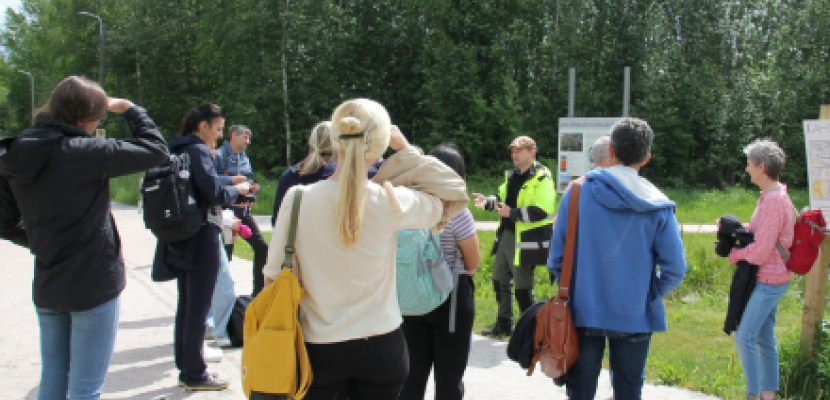
Climate-change walks

About this good practice
As climate change progresses, local adaptation and preparedness measures become increasingly necessary. Municipalities play a central role in preparedness efforts. It is essential to shift from reactive measures to proactive and preventive strategies. Municipalities must identify risks and threats, minimise the adverse effects of disruptions, and ensure the continuity of key services.
At the municipal level, decisions are made by officials and political leaders, with residents' opinions also playing a significant role. It is crucial for all decision-making groups to understand the local impacts of climate change and the proactive measures that can be taken to prepare for associated risks. This is the aim of climate-change walks.
During the walk led by local experts, participants will explore the observable impacts and risks of climate change specific to the destination, they will engage in discussions on various solutions, preparation strategies, and adaptation methods.
Details:
• Duration: 1.5-2 hours / walk
• Target Area: City center or sparsely populated area where the effects of climate change or preparedness and adaptation measures can be observed
• Leaders of the Walk: An expert and a representative of the municipality/site
• Target Group: Municipal decision-makers, personnel, and representatives of companies, citizen
• Themes: Examples can include extreme weather phenomena, floods, vegetation, infrastructure, and traffic (multiple themes can be combined in one walk)
Expert opinion
Resources needed
The primary costs include the salaries (experts, municipal employees). If the walks are organised outside of regular working hours, expenses may arise from overtime compensation. There may also be transportation costs. Communication and marketing efforts are necessary to disseminate information.
Evidence of success
Climate-change walks have been organised five times, with 10 to 20 participants per walk. Feedback highlighted the valuable information and new perspectives provided, as well as positive responses to the locations and experts. The walks enhanced knowledge and understanding, crucial for municipal adaptation efforts. Participants appreciated the clear explanation of immediate environmental risks and potential preparation strategies.
Potential for learning or transfer
Climate-change walks are easy and cost-effective to organise, with a low barrier to participation. Each walk is customised to address the unique characteristics of the target area and the specific climate change risks it faces. This is why Climate-change walks are easily replicable and transferable to any location.
During these walks, participants gain insights into specific climate risks within their municipality or region. They receive detailed information about the impacts of climate change on their immediate environment, enhancing their understanding of the associated challenges and risks. This concrete understanding facilitates informed decision-making.
The primary challenge is motivating municipal decision-makers and employees to participate. To reach a broader audience, some events can be conducted remotely using pre-recorded footage or videos of the target area.


